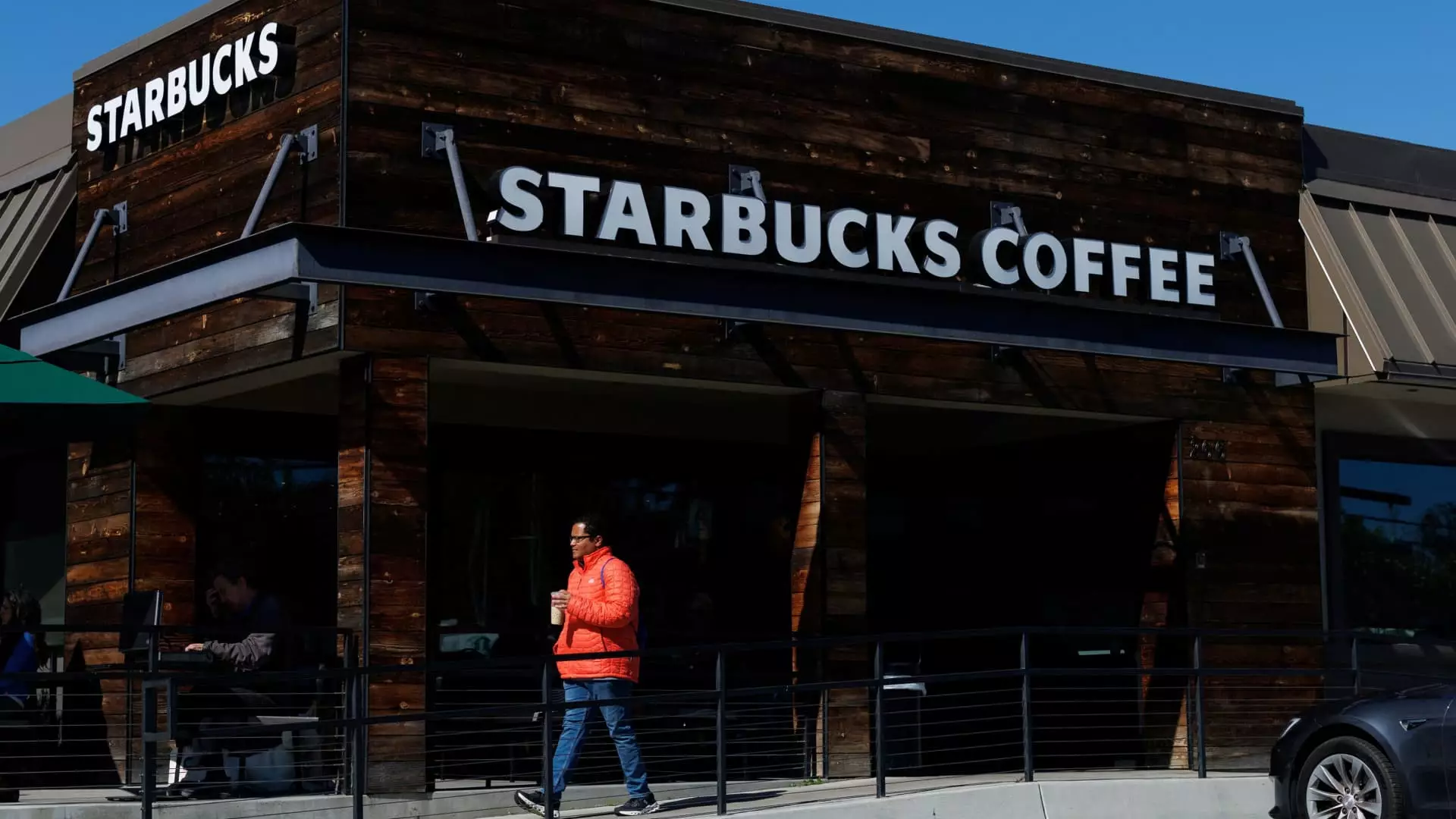Recent events have sent tremors through the restaurant industry, as investor anxiety signals a troubling outlook for the economy. As financial markets experience volatile days, the fear of an impending recession looms large over restaurant stocks, causing significant declines in their share prices. The uncertainty in the economy can be attributed to President Donald Trump’s decision to impose high tariffs on imports from essential trading partners, a move that shocked the financial community. Though industry experts suggest that the direct fallout from these tariffs on restaurants may be limited, there is widespread concern about the inflationary ripple effects that could further strain consumer wallets. This stagnation can create an invisible but immensely powerful barrier to consumer spending, especially when dining out.
Tariffs and Their Indirect Consequences
UBS analyst Dennis Geiger shed light on the interplay of tariffs and the restaurant sector in a recent research note. While the immediate cost implications of tariffs may be manageable for most dining establishments, the larger concern lies in the potential dampening effect on consumer demand. A weakening financial position for consumers could mean they’re less inclined to eat out, opting instead to cut back on discretionary spending. The feared inflation could sidetrack what was once a burgeoning consumer base, leaving restaurants struggling to adapt to a new economic climate. As financial nerves fray and economic forecasts worsen, it raises questions about how restaurants, especially the chains popular with fast-casual diners, will navigate this uncertain terrain.
Starbucks: A Case Study in Vulnerability
Starbucks, a bellwether for the coffee industry, faced significant declines in its stock following an analyst downgrade as a result of these economic headwinds. The coffee chain has already been grappling with operational challenges in the U.S., and a nearly 20% drop in its share prices since the tariffs were imposed only adds to the urgency of its recovery efforts. The company’s plight reflects a broader trend plaguing the industry: the fear of rising commodity costs, damaged consumer sentiment, and the possibility of recession—not just in the U.S. but globally. With key coffee-producing countries facing new tariffs that effectively distort trade, Starbucks, which relies heavily on imports from regions like Vietnam and Brazil, stands to lose ground against competitors. The notion that political unrest can seep into consumer choices underscores a grim reality for businesses reliant on a stable international market.
Casual and Fast-Casual Dining: The Need for Adaptation
Turning to casual dining, names such as Dine Brands—which owns Applebee’s and IHOP—have seen significant stock declines, mirroring the trends across the industry. Traditional establishments like these are not immune to the pressures of an economy in flux, reflecting a consumer base that is increasingly cautious with every dollar spent. Fast-casual chains, which had previously been darlings of investors, are also experiencing downturns as consumers grapple with financial anxiety. Dining out is often one of the first discretionary expenditures to be trimmed from family budgets during uncertain economic times, leaving restaurants vulnerable.
Adding another layer to the challenge is the troubling pattern that emerged last year, whereby lower-income consumers chose to dine out less frequently, while higher-income patrons maintained their habits. This discrepancy fostered an environment of uncertainty and volatility, leading to unexpected sales declines across quick-service restaurants as well.
The Need for Resilience and Innovative Strategies
In an industry where success hinges on understanding consumer behavior, the prevailing sentiment suggests that creativity and resilience will be paramount. Few restaurant stocks managed to escape the downturn, but notable exceptions like Dutch Bros. and Cava demonstrate that nimble responses to changing market conditions can yield positive results. Such companies have leveraged their unique positioning to entice consumers amidst widespread economic pessimism. However, the broader landscape of restaurant stocks serves as a reminder that sustained pressure on consumer spending can significantly impact an entire sector.
As we watch the storm of economic uncertainty continue to swirl, the restaurant industry must innovate to thrive in a climate of fear. Whether it’s reimagining their menus, adjusting pricing strategies, or tightening operational efficiencies, the pathway forward will require savvy leadership willing to confront not just the immediate, tangible effects of tariffs and inflation but also to engage thoughtfully with their ever-evolving consumer base.

Leave a Reply